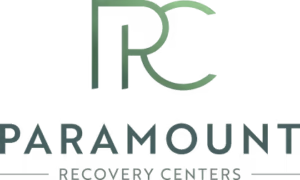3 Steps To Reverse Brain Damage From Drug Use
The below three steps can help to reverse brain damage from drugs and even improve brain health by helping you reach sobriety and discontinue your drug abuse:
Step 1. Detox
Detox is often the first part of reversing brain damage, as it allows your body to physically withdraw from drugs. The detox process typically lasts up to one week and symptoms can range from mild to severe.
Step 2. Cognitive Behavioral Therapy
Cognitive Behavioral Therapy (CBT) is known for being an effective form of addiction treatment. CBT can help you build awareness of any negative thought patterns, incorporate positive thoughts, and change your behaviors.
Step 3. Family and Group Therapy
Family therapy and group therapy both offer a supportive environment while you work through your addiction. Family therapy can help you and your loved ones overcome misunderstandings and heartache and gain clarity on the relationships. Group therapy enables you to receive support from others who have similar experiences with addiction and develop real-life strategies for working through situations outside of addiction. An addiction treatment facility can incorporate the above steps into your treatment plan to help you overcome your addiction and heal your brain.
Request a 100% Confidential Callback
If you or a loved one are struggling with substance abuse and mental health problems, contact our drug and alcohol rehab center in the Greater Boston area to talk confidentially with an addiction specialist. For immediate help, call (978) 878-3677 or fill out the form below, and we will get back to you as soon as possible.
"*" indicates required fields
How Drug Abuse Affects Your Brain
Using alcohol and drugs affect your brain in several ways. This is especially true for individuals who continue to use drugs over an extended period of time.
Mental Health Can Suffer
While different drugs will affect the brain in various ways, many of these drugs will affect your mental health. Some might make you feel depressed (such as Opioids, since they are a depressant for your central nervous system). Others might increase levels of paranoia or anxiety. Drug use makes it nearly impossible for your brain to promote positive mental health.
Your Impulse Control is Altered
This can cause you to engage in risky behaviors that you normally would not engage in if you weren’t actively using drugs. Risky behaviors can also result in severe consequences in your life, making things even more difficult.
You Experience Extreme Emotions
You might feel out of control with your emotions, having them feel more than what you are able to manage. This can result in severe mood swings.
You Have Difficulty Processing Information
Drug use makes it challenging for your brain to process information, especially if the information is new.
Your Memory is Affected
Drug use makes it difficult to remember things, whether it’s plans with friends, moments from a specific evening, or even just daily tasks that need to be completed.
Substance Use Disorder & Brain Chemistry
Drug and alcohol addictions affect the way the brain normally works, altering brain chemistry. The brain consists of many parts, with several areas serving as the pleasure center of the brain. When you use drugs, it essentially triggers the brain’s reward system by releasing dopamine that makes you (and your brain) feel good. Your brain naturally wants more of that feel-good emotion and over time, with recurring drug use, your brain will reinforce those positive experiences, leading to repeated drug abuse. This cycle can alter your brain chemistry and you begin to increasingly crave more of the drug, one of the many signs of addiction.
Get Answers to Your Questions Now
When Brain Damage Occurs
Brain damage can occur when you use any of the below drugs (in addition to many others):
- Alcohol
- Cocaine
- Heroine
- Meth
- Prescription drugs
- Opioids
- Benzos
Drug and Alcohol Addiction Treatment Programs
There are several treatment programs available that can help facilitate healing within your brain by incorporating various therapies. These addiction treatment programs include:
Each of the above programs utilizes evidence-based therapies to support healing and to help you reach sobriety, including individual therapy, group therapy, family therapy, relapse prevention therapy, and many others.
Get Addiction Treatment Today
At Paramount Recovery Centers, we provide respectful, compassionate, and innovative substance use disorder treatment in Massachusetts. Our addiction treatment programs help individuals overcome substance use disorders and any co-occurring mental health conditions. Each program is customized based on each guest’s psychological and emotional health.



